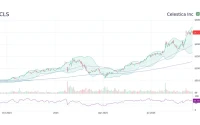You couldn't make this up if you tried.
For weeks, anyone with a passing interest in the New York City mayoral race has been staring at the digital equivalent of a rigged slot machine. The betting markets, those supposed temples of crowd-sourced wisdom, were screaming one thing: Zohran Mamdani was a 90% shoo-in. A done deal. Don’t even bother showing up to vote, folks, the algorithm has already decided.
And I, like a sucker, almost bought it. We all did. We’re so beaten down by data, so trained to trust the percentage point on the screen, that we forget to ask the most basic question: Who’s punching in the numbers?
It turns out the answer is a handful of bots, probably humming away in a server rack somewhere in Shanghai or Dubai, funded by God knows who. This isn't an election; it's a beta test for a new kind of information warfare, and we're all the lab rats.
The Ghost in the Machine
Let's get into the guts of this thing. We’re talking about Polymarket, a crypto betting platform that’s technically off-limits to Americans but, you know, a VPN is a magical thing. An investigation by a group of blockchain nerds called WAS Intel peeled back the curtain, and what they found wasn't the "wisdom of the crowd." It was the brute force of a few, very motivated accounts.
Get this: ten wallets controlled 40% of the entire market for a Mamdani win. The top account, "dubdubdub2," single-handedly dropped $1.2 million betting on him. This account was funded through Binance, an exchange that can't legally operate in the US. The report says this account was placing multiple bets in a single minute. That ain't some guy in his basement with a hunch. That’s a script. A bot.
This is like trying to gauge a movie's popularity by its opening weekend box office, only to find out one guy bought 87% of the tickets. It’s a completely artificial reality. These accounts kept piling money on Mamdani even when his odds were at 91%, meaning there was almost zero financial upside. This was never about making a profit. No, this was about manufacturing a headline.

It's a bad look. Well, 'bad' doesn't cover it—this is a five-alarm dumpster fire for anyone who still believes these markets are some pure, uncorrupted signal of the future. The investigators even found evidence of single wallets distributing funds to a network of other accounts to make it look like a broader base of support. It’s the digital version of hiring a bunch of people to cheer for you at a rally. But who is paying for the applause? And what exactly do they expect to get in return for their investment?
The Algorithm is Your New God
The real kicker, the part that makes my stomach turn, is how this manufactured "reality" bled into the real world. Mamdani himself stood up at a rally and cited the odds from Kalshi—another betting market—as proof of his inevitable victory. "The markets… have our chances of victory in the 90s," he said. I can just picture him, basking in the glow of the stage lights, pointing to the magic number in the sky.
But here’s the shell game: Kalshi is a US-regulated market, which gives it a veneer of legitimacy. The problem is, its odds are directly influenced by Polymarket. When the numbers get out of whack between the two, arbitrage traders swoop in to even them out. So the bot-driven, foreign-funded pump on Polymarket directly dragged Kalshi’s odds along for the ride. It’s a perfect feedback loop, offcourse. Shady crypto money becomes "market data," which becomes a talking point for a candidate, which then influences voters.
You can just imagine some poor guy on the F train, scrolling his phone, seeing "Mamdani 91%," and thinking, "Well, what's the point?" That’s the goal. It’s voter suppression by spreadsheet. It reminds me of those stupid Kickstarter campaigns for vaporware that get 1000% funded in an hour. You just know it's a dozen of the founder's buddies propping it up to create buzz.
And it ain’t just the betting markets. Another report claims TikTok’s algorithm is conveniently "amplifying" Mamdani’s content while burying his opponent, Andrew Cuomo. So on one front, you have the "data" telling you it's over. On the other, you have the social media feed showing you a curated reality where only one candidate seems to exist. And we're supposed to call the result of this a "choice"?
Then, like a splash of cold water, a real poll dropped. A Suffolk University poll. And suddenly, the race is tightening. Cuomo is surging. The 90% certainty is evaporating like a puddle in July. Polymarket itself had to admit that if the trend continues, Cuomo would win, a reversal captured in headlines like Polymarket says Mamdani's 'odds collapse' after new poll: Oct. 28 NYC election update. It just shows how fragile the whole illusion was. It was a house of cards built on ghost money, and the slightest breeze of actual reality sent it tumbling. But the election is just days away, and you have to wonder... how much damage has already been done?
So, Who's Pulling the Levers?
Let's be brutally honest here. This whole episode isn't really about Zohran Mamdani or Andrew Cuomo. It's about the terrifying new landscape we live in. We’ve outsourced our sense of reality to opaque systems we don’t understand and can’t control. A betting market, a social media algorithm—these are the new kingmakers. Forget kissing babies and town halls; the path to victory is now about who has the cleverest bot-herder or the friendliest algorithm. We’re not citizens participating in a democracy anymore. We’re just the end-users for a massive, city-wide A/B test, and we don't even get to see the results.









